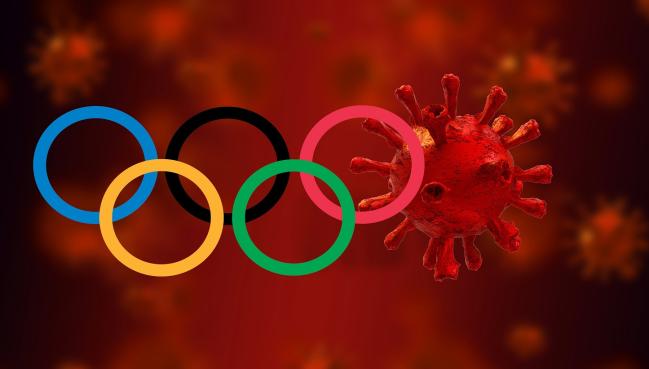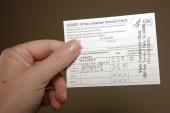No Adverse CV Effects of COVID-19 Vaccination Seen in Elite US Athletes
The study is the first to provide direct insights into the safety of the vaccines in US Olympians and Paralympians.

No adverse cardiovascular complications associated with COVID-19 vaccination were observed among members of Team USA participating in the 2020 or 2022 Olympic Games, providing reassurance as to the safety of the vaccines in elite athletes, according to a study published online recently in Sports Health.
Through more than a year of follow-up, there wasn’t a single case of sudden cardiac arrest/death, myocarditis, pericarditis, or myopericarditis identified within the electronic medical record (EMR) system of the US Olympic and Paralympic Committee (USOPC), researchers led by Ankit Shah, MD (Georgetown University School of Medicine, Washington, DC), report.
“Over the last 2 years, there’s been a lot of claims of sudden cardiac arrests and deaths in athletes [tied to COVID-19 vaccination] that ultimately were false, and a lot of us would go on the record saying there’s no evidence that this was the case,” Shah told TCTMD. “But this is the first study that I’m aware of actually looking at some of our country’s most-elite athletes and looking at cardiac complications, including cardiac arrest and sudden death.”
In that context, these are “reassuring data,” he said.
Jonathan Kim, MD (Emory University School of Medicine, Atlanta, GA), chair of the American College of Cardiology’s sports and exercise cardiology council, echoed that sentiment, noting that when it comes to “being an elite-level athlete, there’s a lot of uniqueness as it relates to being not just young and healthy but well-conditioned and kind of at the pinnacle of health.”
Oftentimes, when discussing risks and benefits with patients, clinicians will extrapolate data from one population to another—in this case, studies in the general population showing that even though cardiovascular complications after COVID-19 vaccination can occur, they are infrequent. As such, for those in sports medicine working with a unique patient population, Kim said, “these are important data to have.”
A Focus on Elite Athletes
Early during the COVID-19 pandemic, concerns were raised about the possibility of cardiac damage induced by SARS-CoV-2 infection among collegiate and professional athletes, with 0.6% to 3.0% meeting clinical criteria for myocarditis.
When COVID-19 vaccines were rolled out, risks of adverse outcomes associated with infection were significantly reduced. Reports then emerged of vaccine-associated cardiac complications, including myocarditis, which were generally rare but higher in certain groups, including young males.
These infrequent complications have driven the spread of unsubstantiated claims that there has been an uptick in sudden deaths, particularly among athletes, that can be tied to cardiovascular complications caused by COVID-19 vaccination. “Sports medicine and sports cardiology experts have refuted these claims,” Shah et al note. In fact, a recent study indicated that the rate of sudden cardiac death among college athletes in the United States has continued a long-term decline, even during the COVID-19 infection and vaccination era.
There has been a dearth of data, however, specifically around the cardiovascular safety of COVID-19 vaccination in elite athletes, Shah said.
To help fill that gap, he and his colleagues retrospectively reviewed data from the EMR system of the USOPC. They looked for cardiac complications related to COVID-19 vaccination between December 11, 2020 (the first day vaccines were available for emergency use) and November 1, 2022.
The analysis included 1,229 athletes who competed in the 2020 Tokyo Olympic and Paralympic Games or the 2022 Beijing Games; mean age ranged from 25.2 to 32.1, and about 50% were women.
For the earlier competition, 73.8% of Olympians and 80.6% of Paralympians with available vaccine status were considered fully vaccinated, defined as at least two doses of most vaccines (or one dose of the Janssen vaccine from Johnson & Johnson). All athletes competing in Beijing were fully vaccinated. The most commonly used vaccines were the mRNA-based shots from Pfizer/BioNTech (53%) and Moderna (29%).
Median follow-up among those who were fully vaccinated was 545 and 444 days for those competing in the 2020 and 2022 Games, respectively. During that time, there were no cardiovascular complications linked to the COVID-19 vaccination reported in the electronic records, either in patients who were known to be fully vaccinated or in those with unknown vaccination status.
“The data demonstrate an overall willingness of elite athletes to receive recommended COVID-19 vaccination coupled with a complete absence of vaccine-related cardiac complications in > 1 year of follow-up,” Shah et al write.
‘Important First Step’
The investigators acknowledge some limitations of the study, including a sample size that isn’t large enough to definitively answer questions about the cardiovascular safety of COVID-19 vaccination, the inability to look beyond clinical diagnoses of events of interest that were included in the EMR, and the lack of imaging data to assess potential subclinical vaccine-related complications.
Nonetheless, “these data are an important first step to better inform cardiologists and sports medicine physicians who care for elite athletes,” they say.
There has been some hesitation among athletes regarding use of the COVID-19 vaccines, Shah noted, adding, however, that “as long as we tell them what we know and what we’ve seen on safety—and all the data’s been very reassuring—most of them come on board.”
Kim also pointed to the limitations of the study and said he’d be careful about overinterpreting the findings. Still, “it’s certainly reassuring” that there were no cases of vaccine-associated complications in the cohort, he said.
The topic doesn’t come up in his interactions with athletes as often at this point as it did even a year ago, but when it does, Kim said it’s important for individuals to make it a personal decision.
“We are in a different time of the pandemic now than we were in 2020, there’s no doubt about that,” Kim said. Higher-risk individuals, such as older people and those with underlying comorbidities, should have COVID-19 vaccination emphasized as an important part of general medical care, he said. But for younger people—particularly males, who have a higher risk of vaccine-related complications—the decision should be personalized, he said.
“With this specific population, I think that shared decision-making process and kind of going through how they feel is an important part of that discussion,” Kim said.
Todd Neale is the Associate News Editor for TCTMD and a Senior Medical Journalist. He got his start in journalism at …
Read Full BioSources
Shah AB, Rizzo SM, Finnoff JT, et al. Cardiovascular safety of the COVID-19 vaccine in Team USA athletes. Sports Health. 2023;Epub ahead of print.
Disclosures
- The study was funded in part by a grant from the International Olympic Committee.
- Shah reports having received consulting fees from the United States Olympic and Paralympic Committee.





Comments